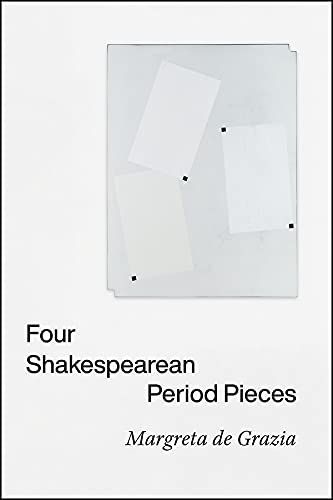
Four Shakespearean Period Pieces
"Margreta de Grazia continues to change the course of Shakespeare Studies in this book, where she focuses on four key terms: anachronism, chronology, periods, and the grand secular narrative. These "unassailable" terms, once considered the bedrock of what we "know" and how we study Shakespeare, are now under debate in our particular moment in the study of the past. Anachronism in Shakespeare's plays (e.g., how Homeric-era Trojan and Greek characters could possibly know Aristotle), once an embarrassment, is now enabling new ways of understanding the plays. Or the accepted chronological composition of the plays, however well documented they may be in performance, drifts further into the murky past as evidence of collaboration, revision, and multiple authorship continues to mount and cast doubt on how the plays relate to one another, and, ultimately how they all eventually relate to the Bard himself. How is it that it took until the nineteenth century for the plays to be performed with costumes and sets appropriate to the era in which a given play's action takes place? And why do we persist in assuming that the godlessness of King Lear's BC Albion necessarily prefigures the modern secularity to come, and not apprehend the tragedy in its own terms: as a pre-Christian drama exercising its own prerogative and worldview? In successive chapters, de Grazia slowly but steadily accumulates seemingly small historical and textual details, whose cumulative effect, as one of our readers says, will be like "a bomb thrown into one of the central rooms of the grand house of literary criticism." And while the book's archive is Shakespearean, its patient, painstaking method has lessons to teach literary scholars well beyond specialists of early modern England"--